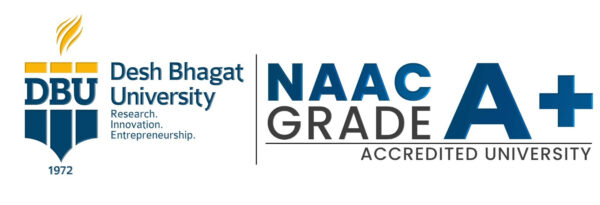Masters in Social Work Courses – Guide, Salary & Jobs in India
September 24, 2025 2025-09-24 8:11Masters in Social Work Courses – Guide, Salary & Jobs in India

Masters in Social Work Courses – Guide, Salary & Jobs in India
When students think of a Masters in Social Work courses, they often imagine a program that combines theory and practice to help society. A Master of Social Work trains students to work in social services, welfare, policy, and community development.
At Desh Bhagat University, in the Department of Social Science, the M.Sc. Social Work course is a part of their PG programs. This shows that the university values social work along with other social sciences.
In this article, we explore what a Master’s degree in Social Work involves, its syllabus, job opportunities, salary expectations, and how it fits in India.
What Is Master of Social Work in India?
A Master of Social Work in India is a postgraduate program focusing on social welfare, community development, and policy interventions. It equips students with skills to address social challenges, work with vulnerable groups, and plan welfare schemes.
At Desh Bhagat University, M.Sc. Social Work is offered under the Department of Social Science in their PG programs. The eligibility is the same as for other PG programs in social science: graduation with a certain minimum mark. The duration is two years (four semesters).
So, when you hear Masters in Social Work, in this context, it means a two-year advanced program that combines academic learning and fieldwork to prepare socially committed professionals.
Eligibility and Admission for Masters in Social Work
To join a Masters in Social Work program, students must meet certain conditions:
- A bachelor’s degree in any discipline from a recognized university.
- Minimum marks required: General category students typically need a minimum of 45% total marks. while for SC/ST/OBC candidates, 40% (or as per relaxation)
- Some universities may require prior study in social work or social sciences, but often any graduation is acceptable.
At Desh Bhagat University, this criterion is aligned with their PG programs in social sciences, including social work. Once you meet eligibility, you may have to submit an application form, meet deadlines, and perhaps attend interviews or counseling (depending on the university rules).
Masters in Social Work Courses — Typical Syllabus & Structure
The detailed syllabus for Masters in Social Work courses at Desh Bhagat University is not fully listed on their website, but we can outline a typical structure (in India) and what you can expect, especially in a good social science department.
Core Subjects & Foundation Papers
- Social work theory and philosophy
- History of social welfare in India
- Human behavior and social environment
- Ethics in social work
- Social policy and planning
Methods & Practice
- Research methods: qualitative & quantitative
- Fieldwork / practicum / internship
- Community organization & development
- Case work, group work, counseling
- Personality development and communication
Specialized / Elective Subjects
- Health and social work
- Child welfare and family issues
- Women’s empowerment & gender studies
- Gerontology & ageing
- Disability studies
- Disaster management & rehabilitation
Project / Thesis
- A mandatory research project or thesis in the final semester
- Field data collection, analysis, and report writing
Other Activities
- Workshops, seminars, guest lectures
- Social work camps, community engagement
- Group activities and presentation
Because Desh Bhagat University is committed to interdisciplinary and social science education, its social work department would likely include such a mix of theory, practice, and community exposure.
This blend ensures that students not only learn from books but also engage with real-world issues and communities.
Why Choose Masters in Social Work?
Here are reasons why a student may choose a Master’s degree in Social Work:
- Serve Society Directly
You get to work with vulnerable populations—children, the elderly, the disabled, women, marginalized communities—and attempt to make a difference. - Skill Development
You acquire communication, counseling, research, planning, negotiation, and critical thinking skills. - Versatile Careers
From NGOs to government, you can find many roles. Social work is not limited to only one field. - Policy Influence
You can work in policy planning and advocacy sectors to shape social welfare schemes. - Academic Growth
After your master’s, you may do a PhD and teach or lead social research.
Because Desh Bhagat University supports social sciences and social work as part of its core offerings in the Faculty of Social Sciences and Languages, choosing this path there gives you an environment that values social commitment.
Master’s in Social Work Salary & Earnings
One of the concerns usually is: what is the Masters in Social Work salary? The answer depends on the kind of job, experience, and employer type (NGO, government, or private). Here’s a rough idea:
- Entry-level (fresh graduates) in NGOs or small agencies: ₹2.5 to ₹4 lakhs per year
- With 2–5 years’ experience: ₹4 to ₹7 lakhs per year
- In government roles, welfare departments, and higher responsibility posts: ₹7 to ₹10+ lakhs per year
- In international NGOs, UN/INGO, or senior research roles: ₹10+ lakhs or more
These are approximate figures and can vary by city, employer funding, and performance. Also, benefits like travel, housing, and allowances may add to the package.
One truth is: the salary improves significantly with experience, specialization, and leadership responsibilities. So Masters in Social Work salary is moderate at the start, but it can grow as you build your reputation.
Job Opportunities after Masters in Social Work
After finishing a Master of Social Work in India, many career paths open up. Here are some:
1. NGOs and Non-profit sector
You can work as a project coordinator, program manager, community organizer, rehabilitation officer, or monitoring & evaluation specialist in NGOs.
2. Government Jobs
- Social welfare department
- Child protection agencies
- Health & family welfare ministry
- Women & Child Development
- Tribal affairs or rural development
These are government jobs after MSW or after Masters in Social Work.
3. Corporate / CSR (Corporate Social Responsibility)
Private companies often run CSR initiatives. With MSW, you can lead these programs, design social impact projects, and manage relations with communities.
4. Research & Policy
Social workers can be hired by think tanks, research groups, and public policy organizations to do surveys, analyze data, and study social impacts.
5. Healthcare & Hospitals
Hospitals need social workers for patient counseling, rehabilitation, mental health support, and community outreach.
6. Education & Academia
You can teach social work, or related subjects, or become a researcher or academic writer.
7. International Organizations
Agencies like UNICEF, WHO, UNDP, etc., often need social work professionals for developmental programmes, humanitarian aid, and disaster response.
Because social issues are always present, the Master’s degree in social work provides a bridge between academic insight and social engagement.
Scope of Masters in Social Work in India
What is the scope of Masters in Social Work in India? It is quite promising, given the social sector growth and welfare programs in India. Some factors that support this scope:
- Government schemes and welfare policies always need experts.
- NGOs and donor agencies are active in India and often look for trained professionals.
- Increasing attention to mental health, disability, rehabilitation, disaster management, environment gives new fields for social work.
- The need for monitoring, evaluation, and data in social programs opens doors for research roles.
- Media, corporations, and social enterprises also want people who understand society and communities.
The opportunities for Master’s in Social Work are growing over time, especially if you combine your degree with skills like research, data analytics, communication, and leadership.
Challenges and Tips to Succeed
There are good opportunities in this field, but some challenges exist. Here are tips to handle them:
- Low starting salary: Don’t expect high pay at first—focus on gaining experience and building a strong record.
- Competition: Many students join NGOs and social work; they stand out with specialization and good performance.
- Funding limits: Some NGOs have small budgets; try to work in well-funded organizations or international projects.
- Emotional stress: Working with vulnerable people can be hard; take care of yourself and seek support when needed.
- Extra skills needed: Learn research tools, data analysis, technology, and project management to be more effective.
To succeed, do internships, volunteer, do small research projects, build a strong portfolio, and connect with professionals in the field.
Why M.Sc. Social Work at Desh Bhagat University?
- Complete Course: Learn the basics and practical skills in areas like community work, mental health, and social policies.
- Real-World Experience: Get hands-on training through fieldwork and internships with communities, NGOs, and government groups.
- Experienced Teachers: Learn from experts who bring real-life knowledge into the classroom.
- Great Career Options: Open doors to jobs in social work, counseling, policy, and management in government, healthcare, and NGOs.
- Make a Difference: Gain the skills to help people in need and improve society.
- Work Ethically: Learn how to work with respect, honesty, and care for people from all backgrounds.
- Industry Connections: Benefit from DBU’s ties with social organizations, giving you opportunities to network and find jobs.
Start your journey to make a positive impact with M.Sc. in Social Work at DBU!

What is Masters in Social Work Courses like: Summary
Masters in Social Work courses teach students about social issues, counseling, community work, policies, and ways to help people. Students learn through theory, research, and practical fieldwork.
A Master of Social Work in India usually lasts two years and requires a graduation degree. Starting salary may be low, but it can grow with experience and specialization. Jobs are available in NGOs, government, hospitals, CSR, research, education, and international organizations.
The demand for social workers in India is increasing because of growing social challenges and welfare programs. Success depends on your skills, hard work, networking, and ability to handle challenges.
Studying MSW at Desh Bhagat University is a good choice. The university values social sciences, offers the Social Work program under its PG courses, and supports research and community work.
Conclusion
A Masters in Social Work is more than just a degree — it is a way to work closely with society and create positive change. The Masters in social work courses teach theory, practical skills, research, and fieldwork, preparing students to handle real social challenges. In India, a Master of Social Work has growing opportunities, and the Masters in Social Work salary can rise with experience and specialization.
Studying a Master’s degree in social work at Desh Bhagat University gives you support in learning social sciences, opportunities for research, and chances to grow both academically and socially. If you want to make a difference, this course can lead to a meaningful and rewarding career.
FAQs
1. What is a Master’s degree in social work?
A Master’s degree in social work is a two-year postgraduate course that trains students to work for the welfare of people and communities. It teaches skills in counseling, community development, and social policy. Students learn how to support individuals, families, and groups who face social, emotional, or economic challenges.
2. What are Masters in social work courses about?
Masters in social work courses cover both theory and practical training. Subjects include social work methods, community practice, human rights, social justice, and research methods. Students also take part in fieldwork, internships, and projects. This mix of classroom and practical learning helps them understand real social issues and solve them effectively.
3. What is the eligibility for Masters in social work?
To get admission in Masters in social work, students must complete a graduation degree in any stream. Most universities ask for at least 45% marks in graduation. For SC, ST, and OBC categories, the minimum requirement is 40% marks. This makes the course accessible to students from many academic backgrounds.
4. What is the duration of Masters in social work?
The Masters in social work course takes two years to complete. It is divided into four semesters. Each semester includes classroom learning, field training, and assignments. During these two years, students gain strong academic knowledge as well as practical experience by working directly with communities and social organizations.
5. What is the Masters in social work syllabus?
The Masters in social work syllabus includes subjects such as social work theory, social casework, group work, community organization, human rights, social policy, and research. Students also learn counseling skills and attend practical field placements. This combination helps them build both theoretical understanding and hands-on experience for future careers.
6. What are the job opportunities after Masters in social work?
After completing Masters in social work, students can work in NGOs, schools, hospitals, community centers, and government organizations. They can become social workers, counselors, project officers, or program managers. They can also work in areas like child welfare, mental health, community development, and corporate social responsibility (CSR) projects.
7. What is the Masters in social work salary in India?
The Masters in social work salary in India depends on the job role and organization. Fresh graduates can earn between ₹20,000 and ₹30,000 per month in NGOs or entry-level positions. With more experience, social workers can earn higher salaries in government jobs, international NGOs, or corporate CSR projects.
8. What is the scope of Master of social work in India?
The scope of Master of Social Work in India is growing because of the demand for trained professionals in the social sector. Graduates can work in education, healthcare, rural development, and social welfare projects. They can also join government services or international organizations, making this field rich with career opportunities.
9. Can I study PhD after Masters in social work?
Yes, after Masters in social work, students can continue their studies with a PhD. A PhD allows specialization in areas like child welfare, medical social work, or community development. It also helps in becoming a professor, researcher, or policy advisor. This opens the path for higher academic and research careers.
10. Why should I choose Masters in social work at Desh Bhagat University?
Desh Bhagat University offers a well-structured Masters in Social Work program that combines theory with practical training. Students learn from experienced faculty and gain fieldwork exposure in different communities. The course prepares them for professional jobs as well as higher studies. The university focuses on both academic growth and social responsibility.







